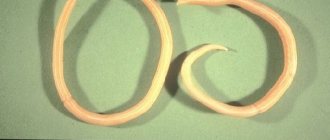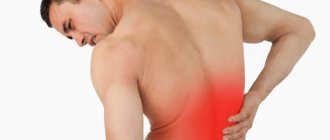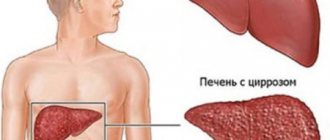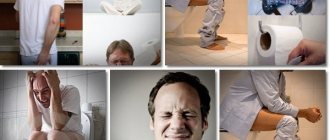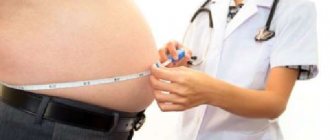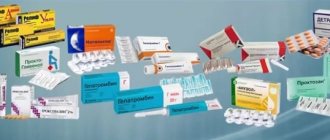Hemorrhoids are a fairly common disease that can occur in both females and males. The disease has quite pronounced and unpleasant symptoms that cause discomfort and pain, which can significantly reduce a person’s quality of life.
Attention! In men, hemorrhoids are one of the most common ailments. Moreover, it can occur at absolutely any age. However, according to statistics, the peak incidence occurs at the age of 40 years.
Experts say that the older a man is, the higher the risk of developing hemorrhoids if appropriate prevention is not carried out. In addition, the complexity and duration of treatment will directly depend on age. The younger the man, the easier the disease will be to treat. Many representatives of the stronger half, faced with this delicate problem, postpone visiting the doctor, which only aggravates the situation. Do not think that the disease can go away on its own. If appropriate treatment is not carried out in a timely manner, it quickly becomes chronic, and after a short improvement, unpleasant symptoms will certainly return again. This also threatens more serious complications, such as thrombosis, rectal prolapse and other equally serious consequences.
Accordingly, a completely natural question arises: why do hemorrhoids appear in men?
? There are many reasons for this that should be considered in more detail.
Will hemorrhoids go away on their own and how long to treat them?
Rectal diseases can occur suddenly. There is discomfort and itching in the anal canal. Can hemorrhoids be treated and how long does it take for complete healing?
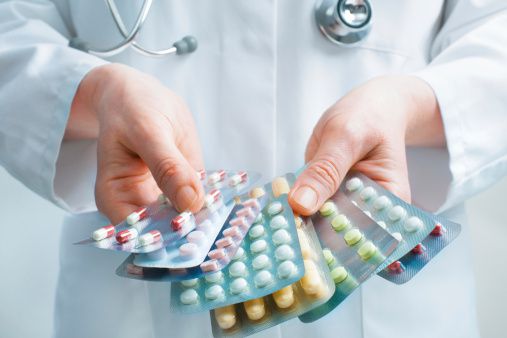
Hemorrhoidal disease is characterized by many different symptoms. The patient experiences pain and is tormented by burning and itching in the anus. Less common are mucous discharge, rectal bleeding, and hemorrhoids begin to fall out.
The medical classification of hemorrhoids is extensive. According to the nature of the disease, it can be chronic or acute. Based on its form, the disease is divided into internal, external and combined.
In the chronic course of the disease, there are four main stages:
- At the first stage, the diagnosis is difficult to establish, since the symptoms are inconsistent.
- Deformed varicose veins periodically fall out during bowel movements and correct themselves.
- Prolapse of nodes does not only occur during bowel movements. It can be triggered by normal straining. To straighten them, the help of hands is required.
- Deformed nodes cannot be straightened and remain outside all the time. This stage is also characterized by other symptoms: pain, bleeding, thrombosis of hemorrhoids, inflammation and strangulation.
The acute form of hemorrhoids occurs as a complication of the chronic one.
Symptoms of hemorrhoids
It is advisable to treat hemorrhoids at an early stage. With proper treatment, the risk of complications is minimized. The therapy is much easier, since the patient does not have severe pain. At an early stage, it is extremely difficult to diagnose the disease, but during this period signs appear that indicate a possible pathological process.
These signs include:
Painful sensations
- Discomfort. It is believed that the appearance of unpleasant sensations is the first alarming symptom, and if it occurs, it is recommended to consult a proctologist. Patients experience a feeling of heaviness, which intensifies during movement or performing physical work. A common occurrence is the sensation of a foreign body in the colon, which gradually intensifies.
- Blood in stool. The early stage of hemorrhoids is not accompanied by heavy bleeding. However, during bowel movements, especially after constipation, patients experience the presence of blood clots. Their presence does not always indicate the presence of hemorrhoids specifically, however, this phenomenon is also a pathology requiring the intervention of a proctologist.
- Itching and burning. Such symptoms occur in both early and late stages. Their appearance is associated with the formation of small cracks in the intestinal walls. The penetration of aggressive substances into these cracks causes unpleasant sensations. In later stages, burning and itching occur as tissues heal.
The nature of the symptoms largely depends on the factor that caused the disease, as well as its stage. There have been cases where the pathology was completely asymptomatic, but at a certain point an acute stage arose, accompanied by severe symptoms. There are also cases where hemorrhoids went away on their own, without medical intervention, but this is an extremely rare occurrence in which the patient is exposed to an undue risk.
The severity of signs of hemorrhoids increases as the pathological process develops and passes into more severe forms.
The following symptoms occur:
- Pain syndrome
- Heavy bleeding
- Knots falling out
- Mucus secretion
- Swelling of the anus
Pain from hemorrhoids is predominantly aching or stabbing in nature. Sometimes there are cutting pains. Strengthening of the syndrome is observed during bowel movements or while in a sitting position.
Stages of hemorrhoids
Loss of nodes is typical for the 3rd and 4th stages. In the first case, the nodes partially fall out and it is possible to reset them independently. At the 4th stage, hemorrhoids become severely inflamed and increase in size, as a result of which their loss is accompanied by severe pain, and self-reduction becomes impossible.
Surgery to remove an umbilical hernia in adults: preparation and execution
Late stages of hemorrhoids are often accompanied by bowel problems. The disorder is not only physiological, but also psychogenic in origin. Severe pain causes the patient to fear going to the toilet. Due to prolonged stagnation of blood and malnutrition of the anal sphincter muscles, involuntary defecation is possible.
In general, the symptoms of hemorrhoids in men are varied, and in many cases are individual for each patient.
How long to treat the disease
It’s hard to say how many days it takes to treat hemorrhoids! The duration of therapy depends on the stage, inflammatory process and alarming symptoms.
Treatment of the pathology depends on the symptoms and stage of the course.
At the initial stage, a conservative course is prescribed, which lasts two weeks. If necessary, after this period the doctor adjusts the therapy. Drug treatment with tablets that tonic blood vessels lasts at least a month.
10-20 days rehabilitation at home
12 days hospital
20 days rehabilitation at home
Complex conservative treatment includes the use of local drugs. Patients are prescribed phlebotonics, ointments and suppositories with anti-inflammatory effects. They are effective for internal and external hemorrhoids, anal fissures and rectal bleeding.
Surgeries to remove hemorrhoids are used in cases where conservative treatment does not give the desired effect. Modern methods for removing hemorrhoids are based on the use of laser, high and low temperatures, and sclerotherapy. Such operations are unique in that they eliminate the problem in just 1 day. They are carried out in the chronic form of the disease.
Consequences and complications
Due to the fact that many patients do not seek medical help in a timely manner, complications and negative consequences of hemorrhoids in men are not uncommon.
Lack of treatment usually leads to a transition to a chronic form. This is a condition in which pathological changes in hemorrhoidal vessels become irreversible, affecting intestinal functions. Periodically, the chronic form causes relapses, but their intensity is less pronounced than in the later stages of acute hemorrhoids.
Other consequences and complications:
- Tissue necrosis. Develops when nodes fall out. The pathology is accompanied by severe pain and requires surgical treatment. The necrotic process can affect the intestinal walls, leading to a violation of their integrity, loss of contents into the abdominal cavity, infection, and internal bleeding.
- Paraproctitis.
A pathology in which inflammation develops in the fatty tissues that envelop the rectum. Gradually, the inflamed area begins to fester and the tissues die. The pathology is accompanied by a strong deterioration in the general condition and provokes severe intoxication, which can lead to death. The appearance of paraproctitis - Anemia. Against the background of hemorrhoids, anemia may develop. This condition does not directly threaten the patient’s life, but it significantly affects his ability to work and his general condition. The patient's appetite decreases, the skin turns pale, and stress resistance decreases. The pathology is caused by excessive blood loss due to anal bleeding.
- Oncological pathologies. Against the background of hemorrhoids, fistulas often form. If left untreated, fistulas can turn into malignant tumors. Colon cancer is considered the most severe and difficult to treat form. In view of this, the presented pathology is considered the most dangerous consequence of hemorrhoids.
- Attachment of infection. If the nodes are damaged and there is heavy bleeding, bacteria may enter. This leads to increased inflammation and aggravation of the disease. Left untreated, it can lead to blood poisoning and potential death.
Thus, hemorrhoids not only cause unpleasant symptoms, but are also dangerous due to possible complications.
Do hemorrhoids go away on their own?
Many patients mistakenly believe that hemorrhoids can go away on their own.
This opinion arises due to the fact that at the initial stage of the disease, symptoms appear only periodically. And patients most often think about consulting a doctor only when the pathological process has already led to serious problems. The first signs of the disease should force the patient to immediately begin treatment in order to prevent the development of internal hemorrhoids, which are dangerous for complications. Deformed hemorrhoids in the later stages of the disease can no longer be restored. In most cases they have to be removed surgically.
Causes of hemorrhoids
All causes of hemorrhoids in men can be divided into three typological groups:
- Metaphysical.
- Psychosomatic.
- Physiological.
Metaphysical and psychosomatic causes of hemorrhoids in men include emotional blockages and subconscious thoughts. This is tension, self-doubt, fear of problems, reluctance to live a normal life. The more complexes a person has, the more hemorrhoids feel.
Nervous experiences arise due to material inferiority, an important decision in life. To improve their well-being, people strive for the best, constantly pushing themselves into limits.
How to completely get rid of the disease
It is impossible to get rid of hemorrhoids once and for all. Provoking factors under favorable conditions contribute to the development of inflammation in the hemorrhoidal plexus. Relapse can occur even after effective therapy if the regimen is not followed.
Symptoms of hemorrhoids will again make themselves felt if you lead a sedentary lifestyle, expose yourself to heavy physical activity, eat poorly, or abuse alcohol. By eliminating the cause of the disease, you can minimize the likelihood of relapses.
Only a doctor can quickly select effective therapy
When prescribing complex therapy, the proctologist necessarily recommends:
- Conduct a mandatory examination to determine the type and stage of hemorrhoids.
- Use medications in the form of ointments, tablets and suppositories as prescribed.
- Undergo additional examination for concomitant pathologies. It is usually recommended to check the functioning of the intestines, stomach, liver, pancreas, and gall bladder.
- Relieve constipation with laxatives and proper nutrition.
- Follow a diet that contains plenty of fluids and dietary fiber, and also excludes fixative and gas-forming foods.
- Bring the intestinal microflora back to normal.
- Set an average level of activity, avoiding physical inactivity and excessive physical activity.
- Make habitual hygiene of the anal area. It is recommended to replace toilet paper with cool water washes.
Self-treatment of hemorrhoids at home can lead to serious complications.
Even with minor symptoms, it is better to consult a doctor who will prescribe the correct treatment tactics and monitor all its stages.
Can it be cured without surgery?
You can get rid of hemorrhoids without surgery in the initial stages, when the hemorrhoids do not protrude from the anus. To do this, you need to take medications as prescribed by your doctor and eat right. A therapeutic diet will help get rid of constipation and improve daily bowel movements.
Meals should be in small portions. Fruits and raw vegetables are very healthy.
To cope with the disease, you need to change your habits.
Morning exercises, daily walks, and jogging will minimize the possibility of relapse. Various forms of hemorrhoids can be treated with suppositories and ointments that contain natural ingredients. These drugs relieve symptoms of the disease in a short time without unpleasant side effects.
How quickly can hemorrhoids be cured?
Hemorrhoids are chronic inflammation and destruction of the venous system of the rectum. It occurs in different ways: in some patients, the latent period continues for a long time without significant symptoms, in others, acute thrombosis of nodes occurs at an early stage, and surgical assistance is required. Therefore, it is difficult to know in advance how long hemorrhoids are treated for a particular person. It depends on the form, stage of the disease, the body’s defenses, and the chosen treatment method.
The optimal therapy is suggested by the proctologist based on the examination and study of test data. If hemorrhoids are changed under the influence of another pathology of the digestive organs or cardiovascular system, then the duration of the measures is determined by the degree of compensation for the underlying disease and sensitivity to medications.
The patient's participation in the treatment process is expressed in following the doctor's recommendations on the regimen and diet. Relying only on medications significantly reduces the effectiveness and prolongs the duration of therapy.
Diagnostics
Diagnosis of hemorrhoids in men begins with the collection and analysis of patient complaints, laboratory and clinical examination, and digital examination.
During the examination, attention is paid to the general condition of the sphincter, mucous layer, the presence or absence of scar changes and deformations, fistula tracts, and the condition of the perianal tissues. A digital examination of the rectum is carried out to assess the tone of the sphincters, the intensity of voluntary contractions, the condition of the rectal ampulla, the presence or absence of neoplasms, etc.
Chronic hemorrhoids in men are characterized by alternating periods of exacerbations and remissions.
Additionally, a rectal ultrasound examination or sigmoidoscopy may be prescribed.
Hemorrhoids in men should be differentiated from the following diseases:
- polyps;
- anal fissures;
- hypertrophied anal papilla;
- villous tumor;
- paraproctitis;
- prolapse of the rectum and/or rectal mucosa;
- rectal cancer.
How long does it take to treat hemorrhoids and how do you know if they are gone?
Proctologists claim that they are able to cure hemorrhoids if the patient agrees to any method. An integrated approach to the problem is to use:
- optimal motor mode and therapeutic exercises;
- proper diet;
- drugs of general and local action;
- minimally invasive techniques;
- classical types of operations to remove and secure nodes with subsequent restoration.
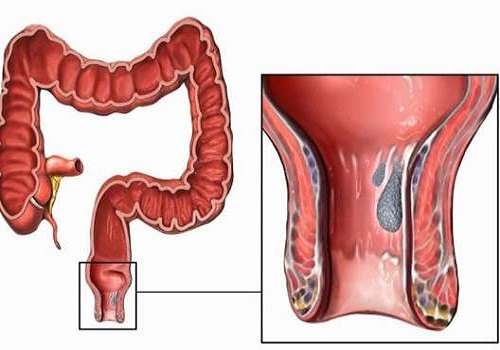
It is difficult to predict exactly how long it will take to treat hemorrhoids in a particular patient. The most significant factors influencing the duration of the required course are:
- The stage of pathological disorders at which the patient sought medical help - in the initial phase of inflammation, the symptoms are mild, the changes are reversible, there are no complications. These are the most favorable conditions for quick treatment. Unfortunately, people rarely come to the doctor at an early stage; they try to cope on their own and use traditional methods. If the condition improves, it will not last long. Exacerbations alternate with periods of subsidence, each time the destruction of hemorrhoidal structures intensifies. Most patients apply when severe clinical manifestations develop (pain, bleeding from the anus, prolapse of cones). The situation will require long-term efforts. You need to understand that healing will occur at a slow pace.
- Choice of treatment method - if a specialist, together with the patient, chooses a conservative method to treat hemorrhoids, then one should not expect a quick effect. Some of the symptoms of exacerbation are well relieved by the use of rectal suppositories, and they are prescribed for a course of at least 7–10 days, then another month in a maintenance dosage (Proctosan suppositories, which act through the activation of local immunity, will require a course of 21 days). If a decision is made on the surgical route of treatment, then the period of postoperative recovery is associated with the tactics of intervention and the quality of preoperative preparation.
- Features of the body - aggravating factors in the treatment of hemorrhoids are considered to be: excess weight, concomitant diseases of the digestive tract, decreased immunity. Cases treated worse are in patients with gastritis, ulcers, liver cirrhosis, and enterocolitis. Old age, previous illnesses, childbirth are serious reasons for the loss of protective forces. A person who does not have concomitant diseases recovers much faster.
- Drinking alcohol, smoking, lack of physical activity, poor nutrition are shortcomings that will require exclusion or severe restrictions. Some people have a hard time adapting to doctor’s recommendations and often violate them. Therefore, the duration of therapy extends for years. Alcohol intake provokes exacerbations. We have to change tactics and methods of treatment.
- There are cases of individual intolerance to medications. Medicines have to be changed and courses interrupted. Accordingly, deadlines are delayed.
- The form of the disease matters. External hemorrhoids are easier to treat because access to the lesion is convenient for applying local agents. Internal nodes disappear with difficulty.
- The removal of an exacerbation can be judged by the resorption of subcutaneous lumps around the anus, the absence of pain and blood discharge during bowel movements, and the cessation of itching.
How many days does it take to treat hemorrhoids with medications?
The use of medications is suitable for outpatient treatment (at home), to relieve acute symptoms, prepare for surgery, and in the postoperative period to ensure healing. The average course of local therapy with ointments and suppositories usually lasts up to two weeks. The patient is prescribed medications 2-3 times a day after hygiene procedures. Relief occurs with mild symptoms on the second day or a week later. To consolidate the effect, the doctor is forced to extend the use of suppositories for another month, but recommends using them only at night.

Venotonic tablets are useful for improving blood flow in the pelvic veins and maintaining vascular tone; the optimal period of treatment is 2-3 months twice a year.
As a result of using medications, the patient feels:
- reduction of pain due to resorption of the inflammatory process;
- bumps on the outside and the sensation of a foreign body inside the anal canal disappear;
- disappearance of bleeding and itching.
Objective results are considered:
- increasing the tone of the veins and improving the outflow from the pelvis;
- getting rid of signs of blood stagnation;
- elimination or prevention of infection of nodes by bacterial intestinal flora.
Upon digital examination, the doctor determines that the pain is much less pronounced, the nodes have turned into empty sac-like formations. If the course of drug therapy does not lead to positive results, then surgical methods are recommended to the patient.
Duration of treatment for hemorrhoids after using minimally invasive techniques
Proctologists note that in recent years the need for surgical treatment of hemorrhoids has decreased due to the widespread use of minimally invasive treatment methods. They are recommended at stages II-III of the disease, if the conservative method does not produce significant results.
The effectiveness of the methods is determined by the direct effect on the enlarged hemorrhoid, leading to drying of the walls and rejection within 10-14 days. The operations are performed on an outpatient basis, without hospitalization.
What a woman needs to know about hemorrhoid treatment
Carrying a child
When it passes into the anus of a woman during pregnancy, the expectant mother should pay attention to this and inform the local gynecologist. Any pathological manifestation must be prevented at an early stage of development.
Treatment is prescribed according to parameters, depending on what pain is felt with hemorrhoids. Some pregnant women think that the discomfort is temporary and will go away on its own, but this is completely wrong. Hemorrhoids with the development and enlargement of the uterus only further aggravate the situation of the expectant mother.
After diagnosing the condition of the anorectal veins, the proctologist prescribes approved therapy, which helps reduce anxiety and prevent hemorrhoidal development. The main therapy is prescribed after the baby is born.
Differences in the duration of treatment for hemorrhoids by type and stage
Different stages of hemorrhoids require careful selection of treatment methods. The time frame will have to include: the medication phase, preparation for minimally invasive methods or surgery, and the course of the postoperative period. Adding spa treatment using natural springs and baths will require increasing the average duration by another month.
The stages of hemorrhoids differ in symptoms and objective manifestations.
Early manifestations may be: a feeling of discomfort, itching around the anus, rare discharge of blood from the intestine during bowel movements or after physical activity, drinking alcohol. Most suitable in such cases:
- dietary restrictions (exclusion of spicy, fatty and fried foods, legumes) to soften stool and prevent constipation;
- quitting smoking and alcoholic beverages;
- taking venotonics in courses of 2 months;
- rectal suppositories of combined action for a period of no more than a week during an exacerbation.
Stage II is accompanied by intense pain, repeated bleeding, prolapse and self-reduction of nodes, possible pinching and the formation of cracks. In addition to the recommendations of the previous level, proctologists advise using minimally invasive techniques after eliminating inflammation. This will require on average up to a month (10 days of medicinal preparation + 2 weeks for rejection of dried nodes). Additional prophylactic administration of venotonics and the use of rectal suppositories cannot be ruled out.
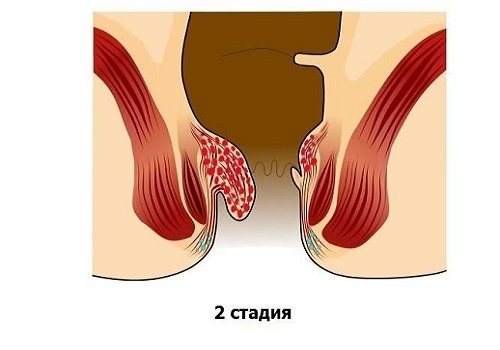
Stage III differs from the previous ones in the spread of inflammation beyond the nodes and the need for manual reduction. Minimally invasive techniques remain indicated. The number of procedures may increase depending on the number of dropped nodes. Combinations are used (sclerotherapy + laser). The Longo resection technique is considered optimal.
At stage IV, when the nodes are constantly on the outside, there is bleeding, severe pain, the sphincter does not close, and the intestinal contents leak out, the only method is radical surgery to remove the nodes with canal plastic surgery. It will take at least 3 months to prepare and recover.
Reasons for development
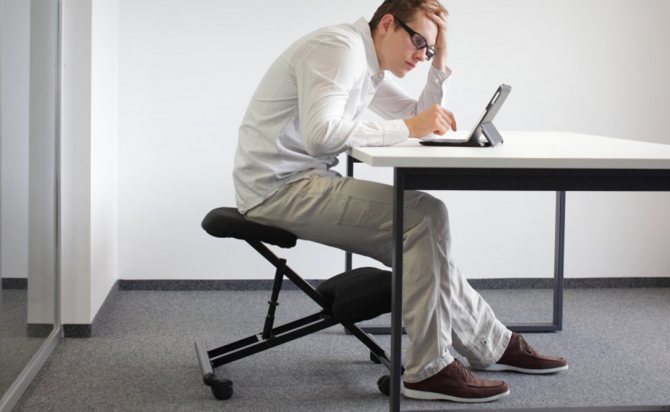
- drivers;
- cashiers;
- hairdressers;
- surgeons;
- office workers, etc.
There are also other factors that cause hemorrhoids in men:
- Constipation and difficulty in digestion. Most men like to eat a lot of spicy, fatty and fried foods with a lot of meat, which takes a long time to digest and causes blood to flow to the vessels of the pelvic organs. In addition, you can often see men with a sweet tooth, and the carbohydrates and fatty creams contained in sweets have a very detrimental effect on the gastrointestinal tract. And also, some men do not consume enough grains, vegetables and fruits, which causes constipation. If you don’t start watching your diet, you will be spoiled for it, since hemorrhoids occur in men due to constipation.
- Alcohol abuse. Nowadays, most men have the bad habit of relaxing with the help of alcohol, and it is one of the reasons for the appearance of hemorrhoids, since when drinking alcohol, the veins dilate and blood flow to the pelvic part increases, which is a further development of its stagnation.
- Prostatitis or other inflammatory diseases of the prostate gland. Since the rectum is very close to the prostate, inflammation in the male organ contributes to blood stagnation. Therefore, hemorrhoids and prostatitis are very related to each other.
- Lifting weights. It is not for nothing that men are called the stronger sex; it is considered common for them to rearrange and lift heavy objects. But when lifting weights, especially when done incorrectly, sharp intra-abdominal pressure occurs. If this happens constantly, then hemorrhoids are only a matter of time.
All of these factors only increase a man’s chance of getting hemorrhoids.
Based on medical data, the main cause of this disease is genetics.
Based on this, if a man has such a disease in his family, the likelihood of its occurrence is very high.
How to speed up the healing process?
If there is no positive result from the treatment of hemorrhoids, you should understand the reasons.
- The patient’s refusal to diet, exercise, or exercise worsens the prognosis for recovery. Continued consumption of alcohol and hazardous foods provokes constipation and blood stagnation in the pelvic veins.
- Violation of the timing of the course of medication does not allow consolidating the effect, achieving the necessary effect on the local focus of inflammation, or eliminating disturbances in the structure of blood vessels and muscles.
- Obesity - the fight against excess weight is necessary to reduce intra-abdominal pressure, eliminate constipation and stagnation in the veins. With continued weight gain, therapeutic measures are unable to prevent prolapse of nodes.
- Violation of the rules of perineal hygiene after defecation, refusal of sitz baths, and regular washing contributes to infection of hemorrhoidal structures.
- Continuing to engage in strenuous sports and sitting for a long time at the workplace disrupts the achieved balance of blood circulation in the lower intestine in favor of stagnation.
To speed up healing and achieve long-term remission of the chronic inflammatory process with hemorrhoids, the patient must become an accomplice in the treatment process, strictly follow the doctor’s instructions, quit bad habits and eat right. When prescribing medications, the period of course use should be observed. To activate the immune system, you will need vitamins and immunomodulators.
Why can hemorrhoids develop?
Hemorrhoids develop in men under the influence of many unfavorable factors.
Bad habits. Alcohol and tobacco contain a large number of toxic compounds that begin to enter the blood and there is a sharp rush of blood to the pelvic area. The veins begin to suffer from this.
Poor nutrition. Men are irresponsible about what they eat, as a result of which, due to junk food, the body begins to suffer from a lack of fiber. This leads to obesity and increased blood pressure, and problems with the digestive tract arise. A person begins to suffer from regular constipation or diarrhea, which contributes to the development of hemorrhoids.

Hard physical labor. By constantly lifting heavy weights, men strain not only the entire body, but also the sphincter area. If this happens constantly, then great harm is caused to the body. But a constant state of rest is no less harmful. A sedentary lifestyle contributes to stagnation of blood in the pelvic area, which, as a result, leads to the development of hemorrhoids.
Genetic predisposition also plays an important role.
Can hemorrhoids go away on their own without treatment?
If we analyze the reasons that provoke the development of hemorrhoidal disease, we can unequivocally say that in most cases the disease cannot go away on its own. Indeed, where will congenital venous incompetence disappear if hemorrhoids are hereditary, or age-related changes in the vascular wall? Bad habits, injuries, infections also leave their mark, and constipation accompanies a person throughout his life.
According to statistics, about 10% of all cases of hemorrhoids heal themselves. We are talking about hemorrhoids that formed during pregnancy, when changes in the anorectal area are insignificant, and the blood flow to the area is completely restored after childbirth, as well as lifestyle changes at the first signs of hemorrhoids: diet, giving up bad habits, regular dosed physical activity (without lifting hyperweights).
Everything is determined by a person’s physiology, his compensatory capabilities, and age. And of course, a lot depends on the stage of hemorrhoids at which it was diagnosed.
The disease can go away on its own only at the very beginning of the formation of nodes. There is currently not a single case in the medical literature describing self-healing of stage 2-4 hemorrhoids with prolapse of nodes.
What determines the duration of treatment for hemorrhoids?
The duration of therapy for hemorrhoidal disease depends on the localization of the pathological process, the individual characteristics of the person, the stage of development of hemorrhoids, and the timeliness of diagnosis.
With internal hemorrhoids, the very localization of the nodes guarantees a long latency in the course of the disease, which means a fairly rapid chronicization of the process. Discomfort in the anorectal area, as a rule, goes unnoticed, and the first signs of pathology in the form of painful bowel movements and bleeding already require appropriate treatment and cannot go away on their own.
External hemorrhoids also do not make themselves felt for a long time, due to the subcutaneous location of the hemorrhoids. At the first stage of development, temporary swelling of the cones during bowel movements and mucous secretions that stain the laundry are ignored and accepted as normal. This development of hemorrhoids is fraught with complications and also does not go away on its own.
How many days does it take to treat hemorrhoids with medication?
It is not possible to guess the exact time of hemorrhoid correction. The earlier the pathology is diagnosed, the faster its complex therapy is carried out, and remission occurs. Sometimes positive results are noticeable already on the third day of complex therapy, but treatment is continued to consolidate the achieved effect.
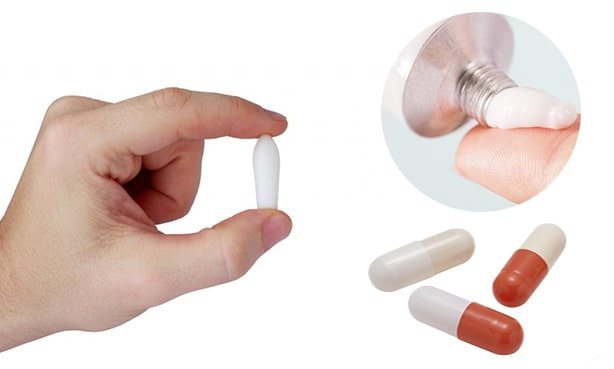
Drug treatment for hemorrhoids is always combined: tablets and external preparations. Conservative treatment regimens require at least two weeks of daily medication, regardless of whether external signs of pathology have disappeared or negative symptoms continue to be present. In some cases, treatment continues for up to a month, and even longer with interruptions.
The goal of conservative therapy:
- relieve inflammation and pain;
- stop the picking of nodes;
- relieve itching and burning of the anus;
- prevent secondary infection;
- strengthen the vein wall;
- normalize microcirculation of the anorectal area.
Treatment is considered effective if all goals are achieved.
Duration of recovery after minimally invasive treatment of hemorrhoids
Minimally invasive techniques are used starting from the second (sometimes also from the first) stage of hemorrhoidal disease. Different methods are used to remove hemorrhoids, therefore the rehabilitation (recovery) periods for such manipulations vary:
- rehabilitation after disarterization does not last long: in a hospital under the supervision of medical staff for the first 3-4 hours after the intervention; then, in a day hospital for three days every day;
- latex ligation does not require hospitalization, but certain rules must be followed for three to four weeks: avoid excessive physical activity, do not lift heavy objects, do not violate intimate hygiene, do not visit the sauna (you can go to work immediately);
- photocoagulation (infrared coagulation) or laser coagulation requires two to three hours of medical supervision, the patient can lead a normal lifestyle within a day or two, but proctologists recommend adhering to a gentle diet for the first days and avoiding heavy physical activity for a week;
- sclerotherapy involves constant active movement after the procedure for two weeks (walking 3-4 km/day); after this time, a consultation with a doctor is scheduled to decide on re-sclerotherapy or a 100% result of treatment (if pain or other negative symptoms occur, an emergency consultation is needed doctor with the prescription of adequate therapy);
- cryodestruction involves three-hour observation after manipulation and up to several months of periodic consultations with a doctor, until the scar at the site of the node completely disappears.
How to speed up recovery
Therapy for hemorrhoids is lengthy and not always effective enough, despite the use of all modern techniques. The reasons are simple:
- violation of medical recommendations;
- errors in diet;
- lack of physical activity;
- failure to comply with intimate hygiene rules.
Scrupulously observing all these “little things” will help speed up your recovery. In addition, the following medications can speed up the healing of hemorrhoids:
- Solcoseryl ointment and gel.
- Levomekol ointment.
- Ointment and suppositories with methyluracil.
- Sea buckthorn oil.
- Natalsid candles.
Read more about treating hemorrhoids at home. The postoperative period and removal of hemorrhoids exclude independent treatment.
How to treat hemorrhoids in men at home?
This trouble has been known since ancient times. People have come up with many ways to alleviate suffering from this disease and completely recover from it. Prevention of hemorrhoids in men at home involves the use of effective folk remedies.
Baths with cool water and potassium permanganate are great for relieving inflammation. To do this, a small amount of potassium permanganate is dissolved in a glass of cold water and poured into a bowl of cooled boiled water. You need to take such baths twice a day for 5 minutes.
Folk remedies help avoid the occurrence of diseases such as hemorrhoids in men. Prevention involves the use of medicinal herbs. For this, a bath is prepared from a decoction of calendula, dandelion and chamomile. To do this, take 50 grams of herb, add 4 liters of water and boil it, after which the composition is infused for 4 hours and poured into the bath. It should be taken within 15 minutes.

If hemorrhoids are external, then compresses and ointments are made. For example, propolis ointment is boiled in a water bath. As soon as the mixture boils, remove it from the heat, cool and apply to the problem area twice a day.
You can drink decoctions of St. John's wort, nettle, and knotweed.

